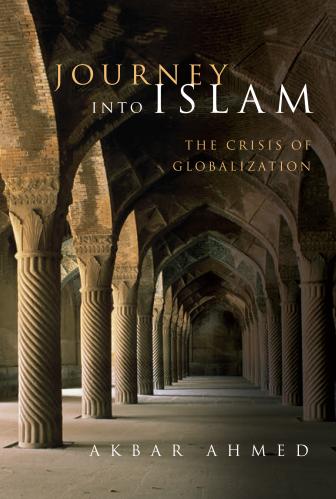The cliché of the single male jihadi took a blow last week when a Frenchman trying to reach Raqqa was stopped at an airport with his two daughters, ages four and two. This came days after reports that an entire French family of 12 had traded the northern city of Lille for greener pastures under the control of the “Islamic State” in the Levant.
The news echoes another exodus taking place at French airports: more than 5,000 French Jews – 1 percent of the community – made Aliyah to Israel this year amid a spike in anti-Semitic incidents at home. At a closed door meeting on anti-Semitism in Paris last week, officials estimated that only one-third of the 1,000 departures for Syria and Iraq are active fighters while the rest are making Hijra – a symbolic return migration to the holy lands of Islam.
Currently home to Europe’s largest Muslim and Jewish communities, 2014 France will be remembered as the year that record numbers of French Muslims and Jews heeded the old populist call to “love it or leave it.”
Does France deserve this grief? On the one hand, the French are part of a larger contemporary wave of cultural-economic malaise. But since France is suffering the worst of it, its political leaders should address the part of it they can control.
France is neither uniquely anti-Semitic nor is it the most anti-Muslim European country. The emigration waves reflect a pervasive social discomfort shared by many, adding a 21st century twist to the old concept of “circular migration”: Western Jihadis wend their way to the Islamic State, Ukrainian and Russian Jews flee to Israel and young Israelis move to Berlin. It’s a haunting game of musical chairs: sit down when the malaise stops.
Economic motivations also play a role in the decision to leave. In 2010, Germany was a net exporter of longtime residents who “returned” to Turkey in the context of growing anti-Muslim sentiment – and a Turkish economy that was growing at more than twice the German rate.
During the last major wave of anti-Semitic acts in 2002, French unemployment was under 8 percent (it’s 10.5 percent now). That year, Israel’s recruitment of French Jews paled in comparison to its success attracting almost 4 percent of the Jewish community candidates from Argentina, where the economy had collapsed. 6,325 Argentinians made Aliyah that year – nearly one in every thirty Jews – compared to 2,500 French citizens.
Today’s French Jews, traumatized by anti-Jewish riots and the second anti-Semitic murder spree by a French Muslim in two years, form the largest national group in the current cohort of immigrants to Israel. The reasons for leaving are different but the patterns are symptomatic of a French republican model under serious strain. In the context of estimated 40 percent unemployment rates for French Muslims, the 180 per million departures to the “Islamic State” is a tiny fraction but still twice the proportion of Libyan, Moroccan or Saudi citizens who have made their way to Syria and Iraq.
Unlike Germany, whose postwar vocation included “mastering the past,” French politics never fully digested the impact of the last century’s colonial and wartime history on the current political position of its minorities. As a result, Jews and Muslims in France feel more victimized by discrimination than any of their European brethren – despite the fact that Jewish and Muslim community organizations enjoy excellent access to policymakers.
Paradoxically, it is that very political clout and the embrace of outward signs of collective identity other than as French citizens – whether Islamic headscarves or Israeli flags – that remain the third rail of French politics. Feeling vulnerable, French minorities don’t see any advantage to forgoing a strong community identity. But organized lobbying groups are resented by those without the same influence and by republican purists for their resemblance to an American free for all. Recent surveys, however, suggest that American Jews and other ethnic groups feel less attached to their communities over time, not more so. Perhaps Aesop was right: the best way to get a man to remove his coat may be the warm sun, not a bitter wind.
If the current trend of self-exile and autonomy movements across Europe contains a lesson for policymakers it is that some form of devolution, whether for Scots in the United Kingdom or for Kurds in Turkey, is always preferable to dissolution. Just as the British political class visibly mobilized to persuade the Scots not to go, French leaders need to make a dramatic stand for pluralism in the Republic and demonstrate their commitment to win back their most alienated citizens before the drips become a flood.
The Brookings Institution is committed to quality, independence, and impact.
We are supported by a diverse array of funders. In line with our values and policies, each Brookings publication represents the sole views of its author(s).








Commentary
French Jihad Movements and Jewish Flight
October 24, 2014